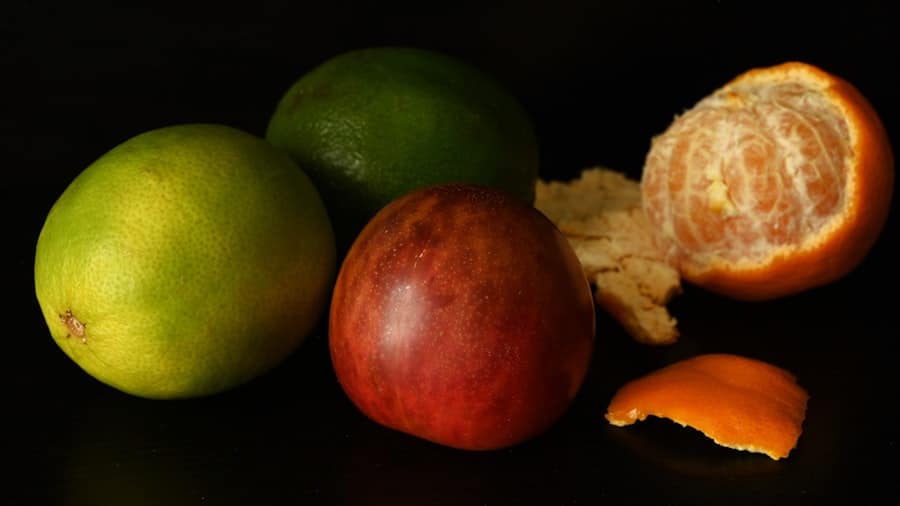The concept of edible vaccines represents a groundbreaking intersection of food science and immunology, offering a novel approach to disease prevention. Unlike traditional vaccines that require needles and often involve complex storage and transportation logistics, edible vaccines can be delivered through commonly consumed foods, such as fruits and vegetables. This innovative method not only simplifies the vaccination process but also has the potential to enhance accessibility, particularly in regions where healthcare infrastructure is limited.
The idea is to genetically engineer plants to produce antigens that can stimulate an immune response in humans, effectively turning these plants into self-administered vaccines. The promise of edible vaccines lies in their ability to overcome several barriers associated with conventional vaccination methods. For instance, the fear of needles often deters individuals from seeking vaccinations, especially in children.
Additionally, the cold chain requirements for traditional vaccines can be a significant hurdle in rural or impoverished areas. By utilizing plants as vehicles for vaccine delivery, researchers aim to create a more user-friendly and cost-effective solution that could revolutionize public health strategies worldwide. The potential for widespread immunization through everyday foods could lead to significant reductions in disease prevalence, particularly in developing countries where infectious diseases remain a major threat.
Key Takeaways
- Edible vaccines are a new approach to vaccination that involves using plants to produce vaccines that can be consumed orally.
- Biotechnology plays a crucial role in the development of edible vaccines, as it allows for the genetic modification of plants to produce specific antigens.
- The benefits of edible vaccines include easier administration, reduced risk of contamination, and potential cost-effectiveness.
- However, challenges and limitations such as regulatory hurdles, public acceptance, and stability of the vaccines in plants need to be addressed.
- Current research and development in the field of edible vaccines focus on improving vaccine efficacy, scalability, and addressing safety concerns.
Biotechnology and Vaccine Development
Biotechnology plays a crucial role in the development of edible vaccines, leveraging genetic engineering techniques to produce specific proteins that elicit an immune response. The process typically involves identifying the target pathogen’s antigens—substances that provoke an immune response—and inserting the corresponding genes into the DNA of a plant. This transformation allows the plant to produce the desired antigens, which can then be consumed by individuals to stimulate immunity against diseases such as hepatitis B, cholera, and even certain cancers.
One of the most notable examples of this technology in action is the development of transgenic plants that express the hepatitis B surface antigen (HBsAg). In studies, researchers have successfully engineered tobacco and potato plants to produce HBsAg, demonstrating that these plants can elicit an immune response comparable to that of traditional vaccines. The use of plants as bioreactors for vaccine production not only reduces costs associated with fermentation and purification processes but also allows for large-scale production in a sustainable manner.
Furthermore, the stability of plant-based vaccines at ambient temperatures makes them particularly suitable for distribution in regions lacking refrigeration facilities.
Benefits of Edible Vaccines

The advantages of edible vaccines extend beyond mere convenience; they encompass a range of public health benefits that could transform vaccination strategies globally. One significant benefit is the potential for increased vaccination rates, particularly among populations that are hesitant or unable to access traditional vaccines. By integrating vaccination into the food supply, individuals may be more inclined to consume these products regularly, thereby receiving their immunizations without the associated anxiety or logistical challenges of needle-based injections.
Moreover, edible vaccines can significantly reduce healthcare costs. Traditional vaccine production involves complex processes that require sterile environments and specialized equipment, leading to high manufacturing costs. In contrast, cultivating plants that produce vaccines can be more economical and environmentally friendly.
The agricultural sector can leverage existing infrastructure for crop production, minimizing the need for extensive new investments in vaccine manufacturing facilities. Additionally, since these vaccines can be consumed orally, they eliminate the need for trained healthcare personnel to administer injections, further reducing costs and increasing accessibility.
Challenges and Limitations
Despite their promising potential, edible vaccines face several challenges and limitations that must be addressed before they can be widely implemented. One primary concern is the variability in immune responses among different individuals. Factors such as age, genetic background, and existing health conditions can influence how effectively a person’s immune system responds to an edible vaccine.
This variability raises questions about the consistency and reliability of immunity conferred by plant-based vaccines compared to traditional methods. Another significant challenge is regulatory approval and public acceptance. The introduction of genetically modified organisms (GMOs) into the food supply often meets with skepticism from consumers and regulatory bodies alike.
Concerns about safety, environmental impact, and ethical considerations surrounding genetic modification can hinder the acceptance of edible vaccines. Rigorous testing and transparent communication about the safety and efficacy of these products will be essential in gaining public trust and ensuring compliance with regulatory standards.
Current Research and Development
Research into edible vaccines is currently at various stages across multiple institutions worldwide. Scientists are exploring a range of plant species for their potential as vaccine carriers, including common crops like maize, rice, and tomatoes. For instance, researchers at the University of California have developed transgenic tomatoes that express antigens for the Norwalk virus, a leading cause of viral gastroenteritis.
Early trials have shown promising results in eliciting immune responses in animal models, paving the way for future human studies. In addition to viral diseases, researchers are also investigating the potential of edible vaccines against bacterial pathogens. A notable example is the development of a plant-based vaccine against cholera, which has been tested in clinical trials with encouraging outcomes.
These studies highlight not only the feasibility of using plants as vaccine platforms but also their versatility in addressing a wide array of infectious diseases. As research progresses, collaborations between academic institutions, government agencies, and private companies are becoming increasingly important to accelerate the development and commercialization of edible vaccines.
Potential Impact on Global Health

The widespread adoption of edible vaccines could have profound implications for global health, particularly in low- and middle-income countries where infectious diseases remain prevalent. By providing an accessible means of vaccination through staple foods, these innovations could significantly reduce morbidity and mortality associated with preventable diseases. For example, edible vaccines targeting diseases like rotavirus or hepatitis A could help protect vulnerable populations who may lack access to conventional healthcare services.
Furthermore, edible vaccines could play a crucial role in pandemic preparedness and response. The rapid development and deployment of effective vaccines during outbreaks are essential for controlling disease spread. Edible vaccines could facilitate quicker responses by allowing for faster production cycles compared to traditional vaccine manufacturing methods.
In scenarios where time is of the essence, such as during an emerging infectious disease outbreak, having a reliable source of oral vaccines could be invaluable in mitigating public health crises.
Regulatory and Ethical Considerations
The path toward the widespread use of edible vaccines is fraught with regulatory hurdles and ethical considerations that must be navigated carefully. Regulatory agencies such as the U.S. Food and Drug Administration (FDA) and the European Medicines Agency (EMA) will need to establish clear guidelines for evaluating the safety and efficacy of these novel products.
Ethical concerns surrounding genetic modification also play a significant role in shaping public perception and acceptance of edible vaccines. Engaging with communities to address fears about GMOs and ensuring transparency in research processes will be critical for fostering trust.
Additionally, considerations regarding intellectual property rights and access to technology must be addressed to prevent monopolization by large corporations at the expense of equitable access for all populations.
Future Outlook and Conclusion
Looking ahead, the future of edible vaccines appears promising but requires continued investment in research and development as well as public engagement efforts. As scientists refine techniques for producing effective plant-based vaccines and address regulatory challenges, there is potential for these innovations to become integral components of global vaccination strategies. The ability to deliver immunizations through everyday foods could not only enhance compliance but also contribute significantly to global health equity.
In conclusion, while challenges remain in terms of safety, efficacy, regulatory approval, and public acceptance, the potential benefits of edible vaccines are substantial. By harnessing biotechnology to create accessible vaccination options through food sources, we may be on the brink of a transformative shift in how we approach disease prevention on a global scale. As research continues to advance and societal attitudes evolve, edible vaccines could emerge as a key tool in combating infectious diseases worldwide.
A related article discussing the latest consumer technology breakthroughs can be found on CNET. The article delves into how advancements in biotechnology are revolutionizing the way vaccines are distributed, particularly through the creation of edible vaccines. To learn more about this innovative approach to healthcare, check out the article on com/cnet-tracks-all-the-latest-consumer-technology-breakthroughs/’>CNET.
FAQs
What is biotech?
Biotech, short for biotechnology, is the use of living organisms or their products to create or modify products, improve plants or animals, or develop microorganisms for specific uses.
What are edible vaccines?
Edible vaccines are vaccines that are produced in edible parts of plants, such as fruits or vegetables, and can be consumed orally. They offer a convenient and cost-effective way to deliver vaccines, especially in areas with limited access to traditional medical facilities.
How is biotech creating edible vaccines?
Biotech companies are using genetic engineering techniques to introduce genes from disease-causing organisms into plants. These plants then produce the antigens that stimulate the immune system to produce antibodies, effectively creating edible vaccines.
What are the advantages of edible vaccines?
Edible vaccines offer several advantages, including easy distribution and administration, reduced risk of contamination, and the potential for mass production at a lower cost compared to traditional vaccines.
What are some examples of edible vaccines in development?
Some examples of edible vaccines in development include bananas that produce antigens for diseases like hepatitis B and cholera, as well as tomatoes that produce antigens for diseases like Norwalk virus and rotavirus.
Are there any concerns about edible vaccines?
Some concerns about edible vaccines include the potential for allergic reactions, the need for proper regulation and safety testing, and the impact on the environment if genetically modified plants escape into the wild. Ongoing research is addressing these concerns.

